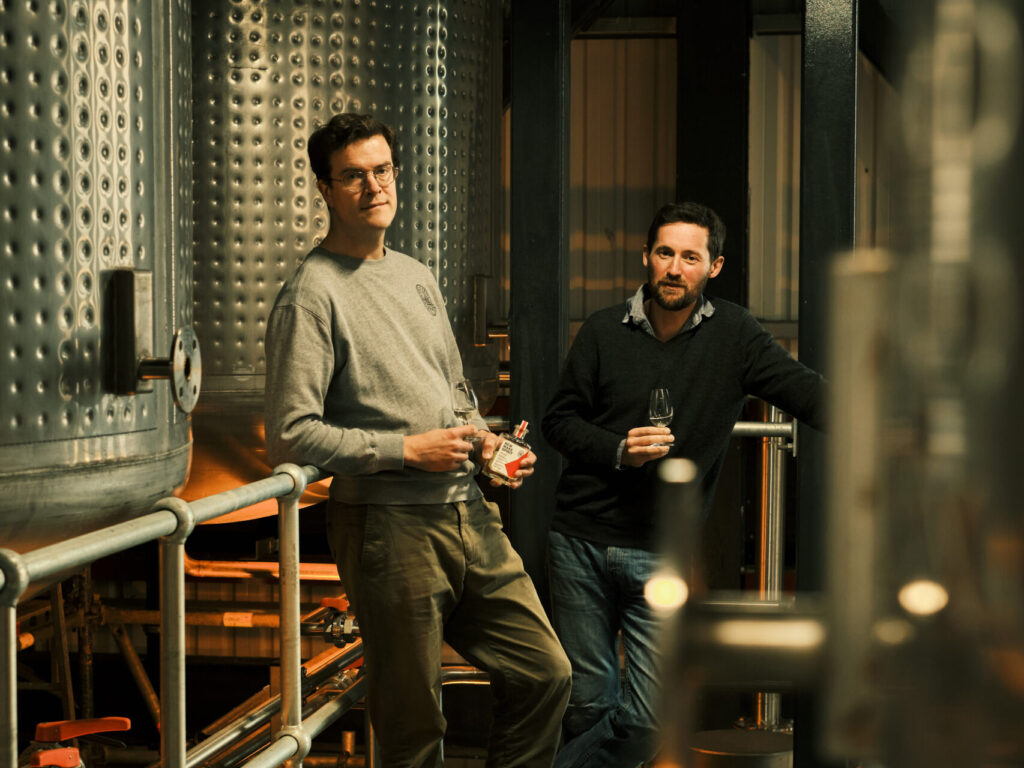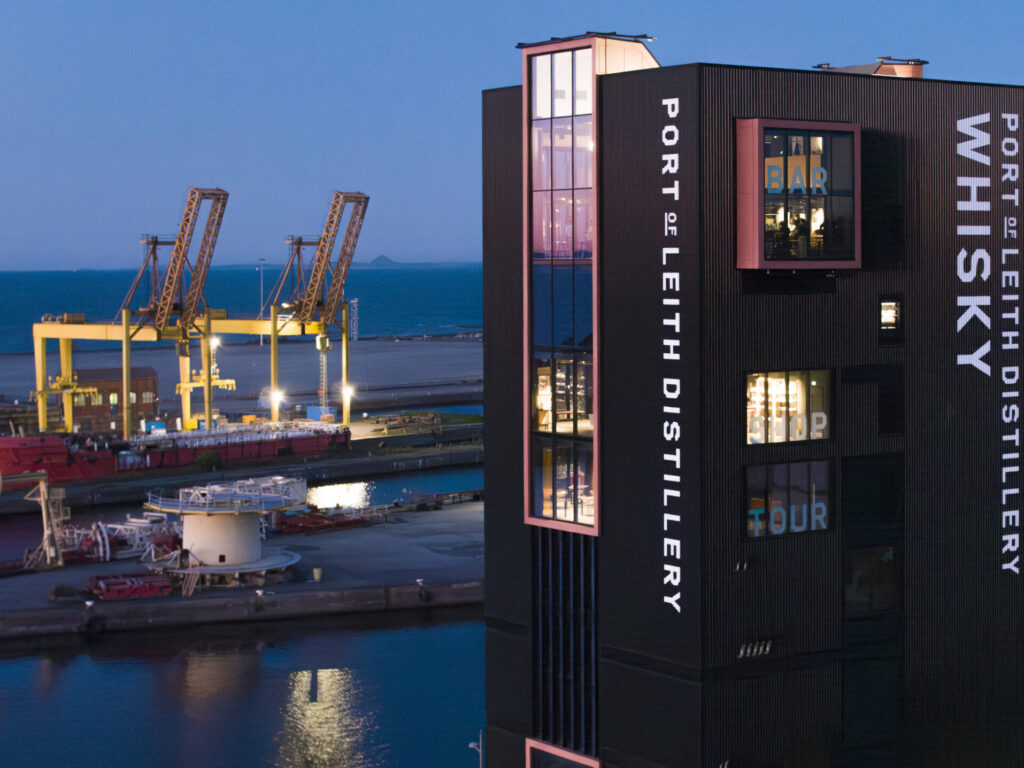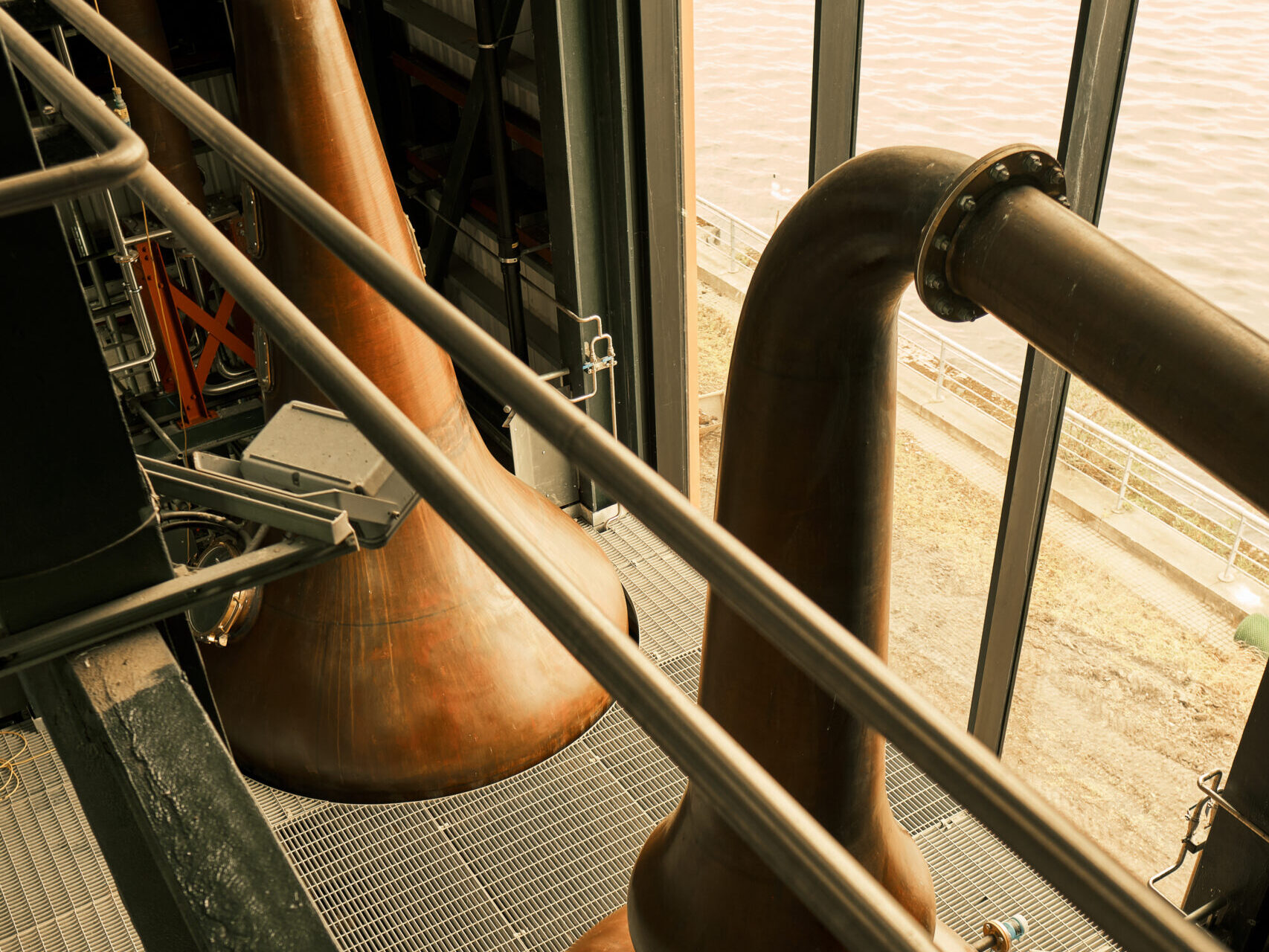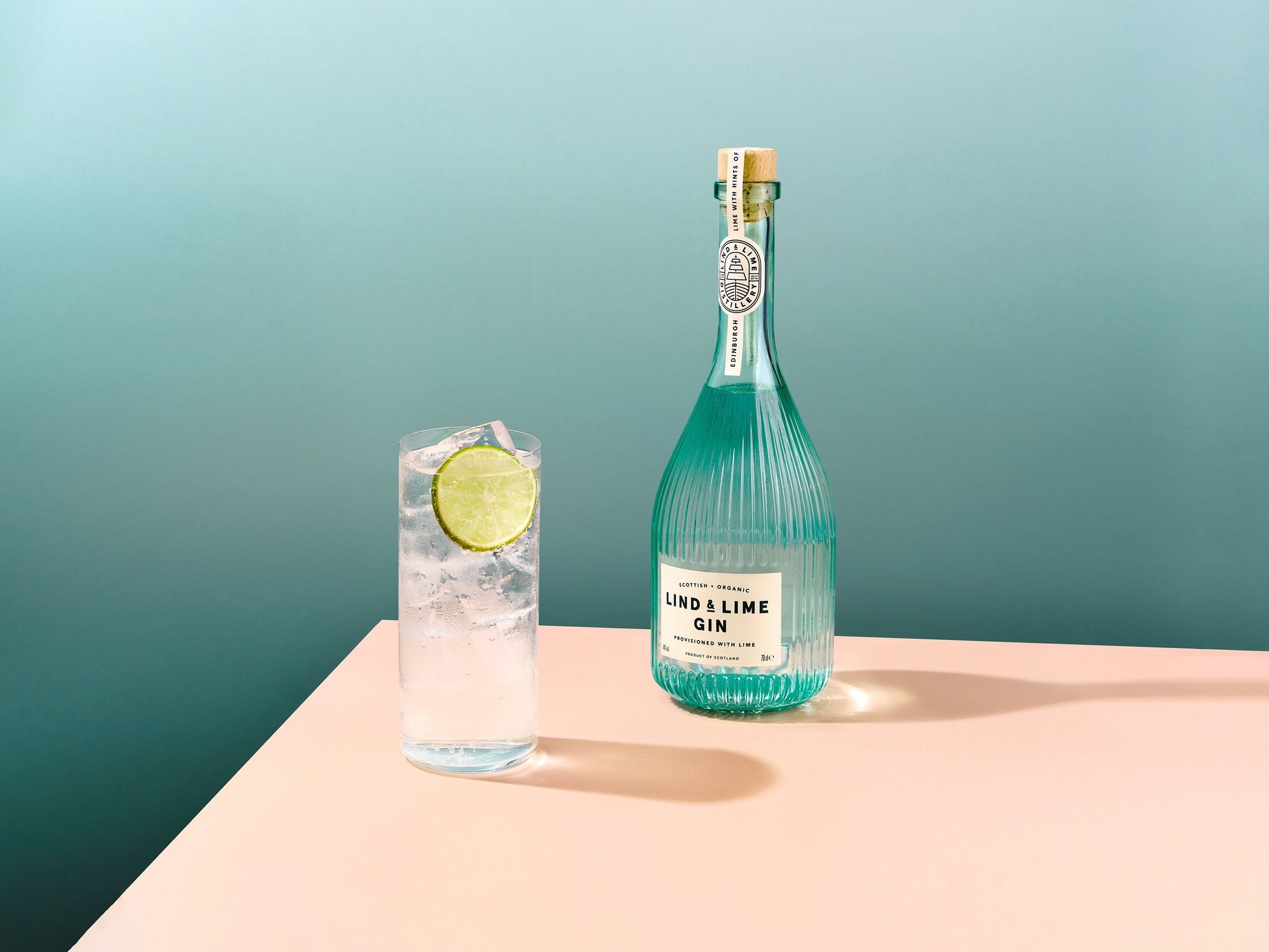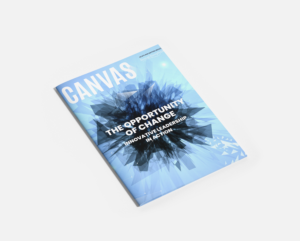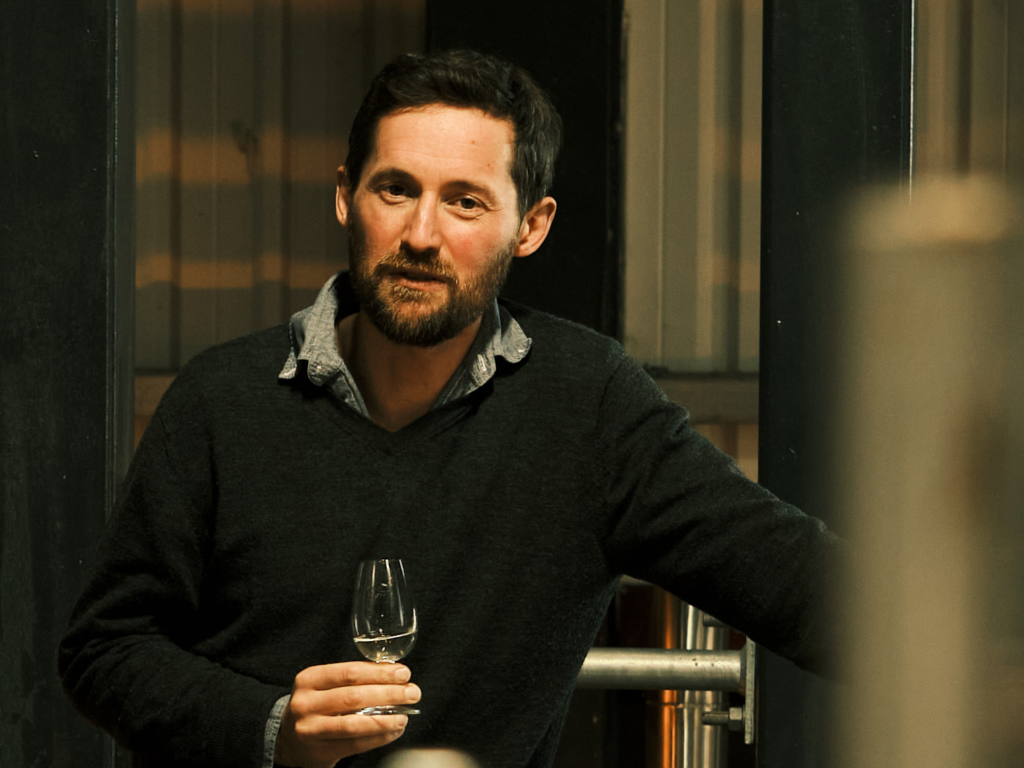
Scotland’s long tradition of whisky distilling and historical connection to Edinburgh made the perfect blend for Paddy Fletcher and his co-founder Ian Stirling to establish a new entrant to the industry. Building not only Scotland’s first vertical whisky distillery, which is a beautiful addition to the skyline, and a much enjoyed stop on the food and drink trail, but also establishing a new emerging gin to the market, the duo are entrepreneurs with passion and purpose at the core of all they do.
We were delighted to have the chance to sit down and chat to Paddy Fletcher – this time with a coffee (it was 10am), but we have been promised a wee nip of whisky next time, and marvel at the innovation in the building and the business approach behind it. The views were pretty spectacular too.
Paddy, can you tell us the origins of MuckleBrig?
My founding partner, Ian Stirling, and I were living in London, but both from Edinburgh and with a shared love of whisky. As we started to drink increasingly expensive whiskies we started wondering if we might be able to produce our own.
We both wanted to move back to Edinburgh and were keen to run a business together. We started our research and discovered there wasn’t a whisky distillery actually in Edinburgh. As the capital city with approximately five million tourists visiting annually, it seemed bizarre there was no single malt whisky production in the city and that captured our imaginations. That was 2012 – we decided we needed a business plan.
However, whisky distilling isn’t an easy process, and neither is the planning system in Edinburgh, we discovered. We knew we would need to find a location, build a distillery, buy the equipment, hire staff and then start the distilling process.
So began a long and often painful and disappointing journey to find investors. We had many interesting initial meetings and travelled to the US and other places to source investment. Eventually it felt like we were taking every opportunity at meetings, dinners, weddings and funerals (actually I don’t think we went that far), to source people who would like to invest.
There was a huge amount of demand for whisky, and not enough supply, and we thought if we could get our distillery off the ground and sell tickets and tours, even in advance of our own whisky being ready, it would be a good start and cover running costs.
We were clear we wanted the distillery to be in Leith. The area has a rich history as the whisky capital of Scotland in the 19th Century and has emerged more recently as a trendy and upcoming neighbourhood. It was estimated that during that era, 90 per cent of all whisky in the world passed through the docks, in the north of the city, when it was still an independent municipality. We got quite far with one site, which was then sold for flats, before we found our current site, right in the heart of the Port. It was a small space, but crucially it was available.
We finally got our funding and in 2019 commenced construction, before being almost immediately shut down by Covid. In late 2023, we finally opened the Port of Leith Distillery – Scotland’s first vertical whisky distillery, standing nine storeys high, right next to where the Royal Yacht Britannia is docked, with views out to the port and the Firth of Forth beyond.
“We have managed to build something truly special: Scotland’s first vertical whisky distillery, and quite possibly the world’s tallest. And in our opinion, it is a thing of beauty.”
You have had an interesting and varied career. What drove your decision to found Muckle Brig?
I started my career as a journalist for a very brief period, and then studied to become an accountant. I worked in a range of companies, firstly in construction and then for a number of rather unprofitable technology start- ups. So, I have learned what does and doesn’t work in the start-up world (or think I have anyway). And certainly, having a keen eye on cash burn is important.
I then joined WeWork and loved that job. It was a tough culture; work hard and play hard. But as the company was so new and growing so fast, you could make an impact quickly if you wanted to. I left about two months before it all went upside down for WeWork, but it was an amazing experience.
Working across all those companies made me think we could do it as well, if not better, than many of them had. Ian was working in the wine business and had lots of industry contacts and that was important. We had experimented with making whisky in our gardens, but we were not craft brewers or distillers by trade, and we did need people who knew much more about it than we did.
So, from 2013 we spent the next ten years raising money. We did an initial seed round for £400,000 and with that we started to work on getting consent and designs for the distillery, but we knew we needed to make money, so we started our gin brand, Lind & Lime. It has done better than we expected at the time, even though we entered at the tail end of the gin boom, but it also really helped us to build up the distribution network, which will be vital for our whisky business. We ended up needing a lot more money than we initially envisaged, partly due to the delays from Covid, but also the complexity of our building and the opportunity to grow the brands we’ve started along the way, such as Lind & Lime, and also our imported Champagne and fortified wines.
As a founder in a young and ambitious business. How have you ensured that you have maintained a supportive counsel around you?
The most important element for me has been to work with a co-founder I trust and where we can balance out each other’s qualities and areas of challenge. I think having another person there to share the highs and lows makes such a huge difference.
We did spend a lot of time asking people for advice, and you should never be afraid to do that as were amazed by how many people gave us theirs for free. Looking for investment is pretty draining and we needed to be able to pep each other up through the process.
I think there is a problem fundamentally in this country for start-up finance in most industries, beyond technology. We need to have a greater focus on encouraging entrepreneurialism and creativity and make funding streams and tax incentives more appealing and available. High street banks are effectively off limits to new companies from a debt perspective, so there’s a huge gap in the £1m – £20m space. Once you’ve exhausted the Enterprise Investment Scheme, there needs to be a similar scheme for commercial debt to help young companies scale. Outside of venture capital backing for technology startups, there’s a total void for business finance.
“We did spend a lot of time asking people for advice, and you should never be afraid to do that as were amazed by how many people gave us theirs for free.”
You are a B-Corp business, looking to build a ‘joyful ecosystem’. How are you working to deliver your sustainability goals in partnership with and as an example to others in this industry?
Our values and the idea of a ‘joyful ecosystem’ came from being inspired at a WeWork conference. We didn’t have any staff working for us at the time, but we were focused on defining and maintaining values and while these have evolved over time one of our key ones is that we want to keep our conscience clear and do more good than bad. This is potentially challenging in the whisky industry, as it does require a lot of energy usage in the production and distribution stages, but we have done our best to focus on clean energy as much as possible.
We’ve built two effluent tanks when one would have been cheaper, but this allows us to isolate the pot ale we produce (as opposed to other types of effluent) so we can send it to renewables companies who can use it as feedstock for anaerobic digesters to produce, for example, biogas.
We don’t use any plastic packaging in our stoppers or labels and no tins or booklets as secondary materials. This is sometimes a difficult one but we talk to our suppliers and say the focus should be on the liquid and that is what we do. It isn’t popular in every country, but we want to be ahead of the curve and keep our conscience clear.
We source our barley from a local farm who grow it specifically for us in East Lothian, just outside Edinburgh. We work with the farmer there to ensure we understand the process of responsible husbandry and to ensure we are getting the best characteristics from the crop.
Community, location and heritage are important parts of your business identity. Can you share your secret to success in combining the heritage and tradition of distilling whisky with the modern, inclusive workplace you have created?
Location was important for sure. We wanted to be centrally located for a number of reasons – staff availability, visitor access and the importance of history in Leith for trade and whisky exporting especially.
Community is important, not just for us but for the other businesses, visitor attractions and bus and tram networks – we all want to improve the ecosystem we live in and make this part of Edinburgh a real destination and we are working hard to do that.
We did meet challenges as there is very little available industrial space in Edinburgh, but we were persistent and continued to have conversations and showed flexibility in our design and approach, and with supportive investors we have managed to build something truly special: Scotland’s first vertical whisky distillery, and quite possibly the world’s tallest. And in our opinion, it is a thing of beauty.
“We want people to work hard as genuinely that makes for a more effective and happy business, but what we really focus on is our culture and understanding that our team all have lives outside of work.”
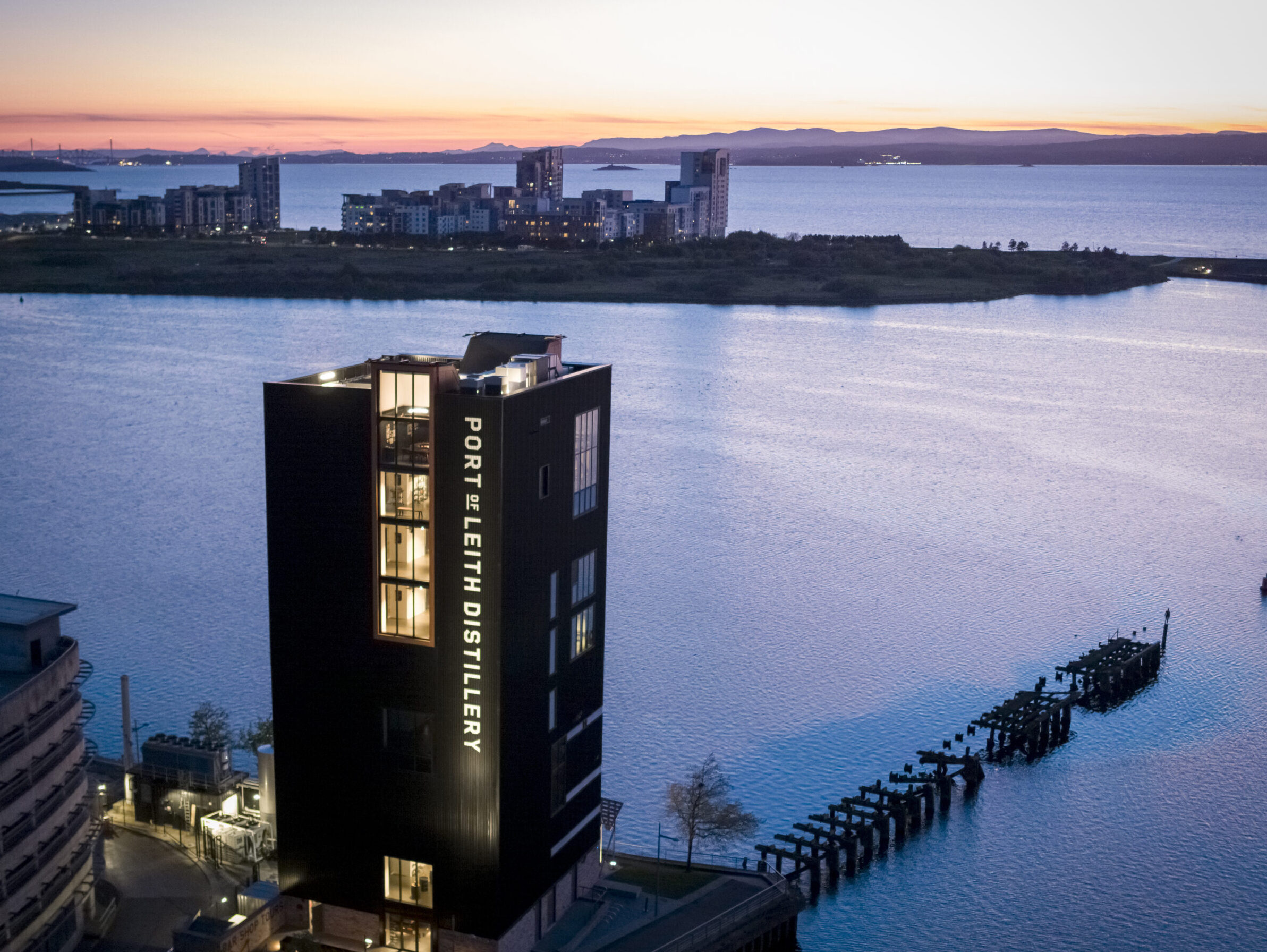
What are your drivers in business? And, as a leader what do you prioritise for yourself and those you work with?
We are driven by an ambition to create a company where we really want to work every day, where we have a work life balance. We want people to work hard as genuinely that makes for a more effective and happy business, but what we really focus on is our culture and understanding that our team all have lives outside of work. Flexibility is key as our job descriptions are often new roles and so we can’t be completely prescriptive about what it entails at the beginning. We have 75 employees now and we need to be able to let people do their jobs, respect their knowledge and passion, and not micromanage.
We have only had a handful of people leave our business, and we’ve had several employees make exciting moves between teams, for instance from hospitality into distilling or production into sales, so hopefully we are doing something right.
This type of business and our approach to workplace values and culture, and our commitment to trying hard to be conscious of our environmental impact where we can, seems to resonate with the current generation looking to have an impact and showcase passion and develop new skills.
Visit – www.leithdistillery.com
